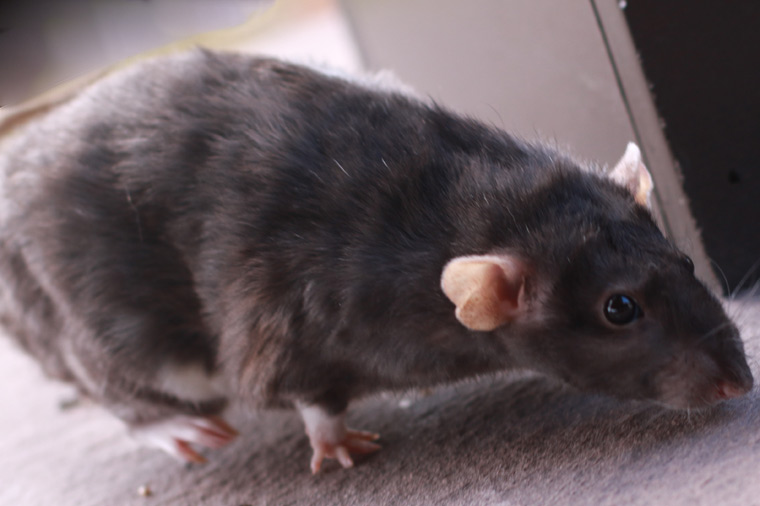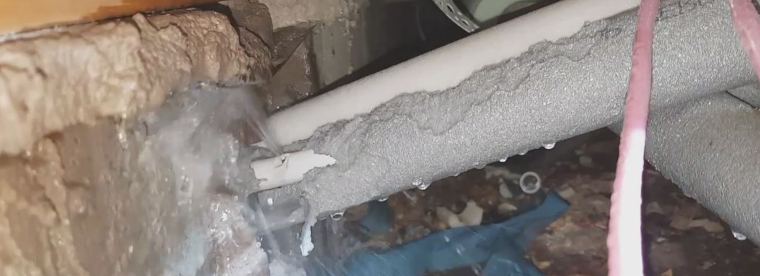-
info@aaanimalcontrol.com
Call us for help in your town
Humane Wildlife Education
Do animals chew on water pipes, are there risks involved?
Need wildlife removal in your hometown? We service over 500 USA locations! Click here to hire us in your town and check prices - updated for year 2020.
Rats can easily chew on water pipes, particularly if they are made out of plastic. In fact, rats can chew through a vast array of materials, from plastic to wood, drywall, and even some soft metals in some cases. They’re determined and stubborn little creatures, and they have the tools to go hand in hand with that too. If the rat wants in, it’ll get in, unless you have protected that space beforehand, of course.

It is quite unlikely that you will find rats in your sewer systems or pipes, but it does happen, particularly in places where the water and sewer systems themselves are quite old. Floods and other natural events can cause sewer systems to become flooded, and this also makes it a lot easier for the rats to get in. They can swim, climb, hold their breath for quite a long time, and squeeze through the smallest spaces, surviving on scraps of food that not much else in the food chain would happily munch down on. Rats were basically made for living in sewers and other small spaces.
If rats do chew on your water pipes, the biggest risks are of flooding. Floods can be expensive when it comes to repairing the damage left behind after the water has been mopped up or subsided. Some homeowners insurance won’t cover you for a burst water pipe, if the bursting was caused by rats chewing. A rat problem is one that you should generally pick up from quite an early point, especially if you do your due diligence as a homeowner and inspect / care for your property regularly. You will notice feces, staining from urine or fur rubbing, or maybe even tiny paw prints, and you’ll definitely spot the chewing action. You may even hear these creatures. Essentially, rats make it quite easy for you to pick up them, so if you don't, and then you suffer with damage as a result, you may be required to put your own hand in your pocket to pay for the repairs.
Do rodents chew pex or other water pipes?
Need rodent removal in your hometown? We service over 500 USA locations! Click here to hire us in your town and check prices- updated for year 2020.
When we say that rats chew everything, we really do mean that they chew through everything. Literally, everything. It could be a cardboard box filled with your precious photographs in the attic, or even the wooden beams that hold up the foundations of your roof. In some cases rats are able to chew through drywall with some persistence, and you can include brick and concrete to the list of materials that are not exactly what you'd call rodent-proof.

If even strong and durable materials such as drywall and brick stand no chance against a rodent infestation, softer materials such as wood and plastic are going to be not problem, and this does include any pex pipework that you may have in your home. Rats CAN chew through pex and other water pipes, and as well as causing potential flooding that can cause damage that rides into the thousands to repair, this can also be very dangerous if the pipes are close to anything electrical-related. Electrics and water combined never make for a great experience, and electric shocks are inevitable. In some cases, these rat-related accidents could prove to be fatal.
Of course, if you live in an area that suffers with actual flooding from rivers or waterways close by, rats are a problem that is, unfortunately, inevitable. If pipework has been damaged that allows the rats to gain access to your home, that's exactly what they'll do. Flooding often allows for sewers to become overfilled and burst, as well as other waterways, and this leads the rodents right into buildings that have pipework that has fallen into disrepair. The burrows that these rats would once have found salvation in, buried in the ground, would have flooded. They have no choice but to seek higher ground. In many cases, this will mean right inside your home.
Of course, when you have rats and water side by side, the threat of diseases borne by rats is greatly increased. Rats are known to leave disease threats behind in urine, feces, and even just touching walls, floors, surfaces, etc. Leptospirosis, for example, is one disease that is commonly passed on via rat urine, and this can be found in the water that these rats can be found in when pex and other water pipes are damaged or chewed through by rats.
For more information, you may want to click on one of these guides that I wrote:
How To Guide: Who should I hire? - What questions to ask, to look for, who NOT to hire.
How To Guide: do it yourself! - Advice on saving money by doing wildlife removal yourself.
Guide: How much does wildlife removal cost? - Analysis of wildlife control prices.
animals in the attic
noises in the attic


















